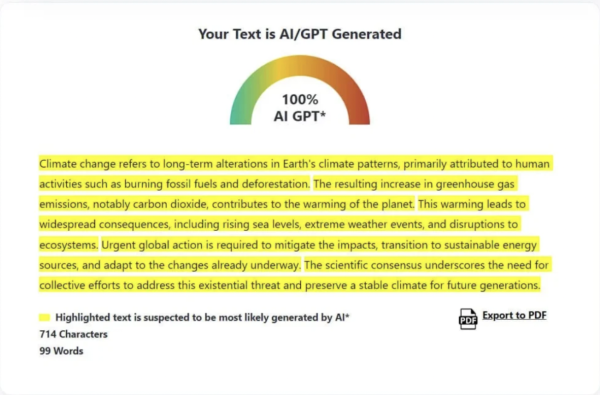The Claudia Conway Phenomenon
Can we rely on an influencer as a primary source?
It’s 7 am. You’re 17, exhausted, and politically active — the three defining points of your character. You roll over to check the news, swiping up your phone screen and opening Twitter. @realDonaldTrump has tweeted. Maybe you fact-check it on The New York Times, but school is starting soon. You swipe over to TikTok, where the next wave of political news is brought to you by @claudiamconway.
Claudia Conway is a 16-year-old controversy. Rising to fame after announcing on TikTok that she was the daughter of the infamous Kellyanne Conway (a former member of President Trump’s counsel), this maybelline-coated blonde quickly accumulated a following of mostly liberal fans. Currently, her platform has over 1 million followers. Her content ranges from bold-faced activism to simple videos where she shows off her makeup or lip-syncs in front of the camera. In one swipe she’ll hail slogans like “ACAB” and encourage her followers to vote, while in another she dances to a popular song. She encapsulates social media activism, a mix of trends and passionate intentions.
What differentiates Claudia Conway from any other teenage activist, however, is her connections. She is the perfect poster child for her movement, defying all odds put against her by her family’s background. This generation loves irony and contrast, making Conway’s rise to fame a walk in the park. Not only is she liberal and in tune with her generation, but she has the palatable look of a pretty white girl — what social media praises in practice and condemns in theory. But commenting on a news source’s appearance would distract from its purpose, so why is it up for discussion?
For a 16-year-old girl, being a fountain of exposition for the inner workings of the White House was not a choice. It was a projection. The social media activism generation often falls into the trap of congenital responsibility —in other words, expecting someone to take action because of something they can’t change, like race, sexuality, or family. But a role this personal and public has never been played before. News anchors are separate from their words. Written journalism has an air of anonymity. But each word that comes out of Claudia Conway’s TikToks and tweets is associated with her identity, both professional and private.
The social justice generation feels distant from their villains. Whether it be Donald Trump, Mike Pence, or Kellyanne Conway, we know that our social media posts and hometown protests wouldn’t be heard by them – or perhaps, they wouldn’t want to listen. But Claudia is a striking contrast, who can communicate the bandwagon opinions to someone who has power. With the social media popularity of politicians like Donald Trump and Alexandria Ocasio-Cortez, the aforementioned distance has shortened. It’s a political experiment that leaves us wondering of its sustainability.
A survey by Common Sense Media revealed that 54% of teenagers get their information from social media. This broad statistic includes hundreds of posts daily with incorrect or heavily biased information, contributing to a dangerous political climate with a repostable bandwagon mindset. Claudia Conway is just a fraction of this. Recently, as Trump and more members of the White House contracted COVID-19, she replied to a comment of someone claiming the president was recovering with a short sentence contradicting them. This was followed by a huge backlash, resulting in a post where she had to clarify that she was speculating and did not have any special information.
What her following fails to see is her dualities. Whether she has inside information or not, all 16 year olds have the right to use social media to speculate, joke, and more. When she makes small mistakes, they are met with hostility and hate. As we project an identity upon a growing teenager, how moral is it to rely on her for information, for news? Conway has received death threats, homophobic and racist messages, and more. The attacks are both directed at her content and her character. The expectations for her are high, but social media influencers are fictional characters come to life. They should not be sources, nor feel the responsibility to be such. They are just another form of entertainment, and the most successful ones mimic a favorite character – defying all odds and expectations and triumphing over evil. We may as well give Claudia Conway a sword and make the conservative party a fire breathing dragon.







